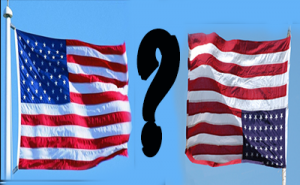 In the private sector, nondisclosure agreements (NDAs) can serve a very useful purpose. As Adam Hays put it in Investopedia: To maintain a competitive advantage, businesses must keep working projects, innovative ideas, or exciting new products secret lest they fall into the hands of a competitor. Similarly, startup companies with a new and profitable idea can only succeed if what they are working on remains under wraps. https://www.investopedia.com/articles/investing/041315/how-ndas-work-and-why-theyre-important.asp
In the private sector, nondisclosure agreements (NDAs) can serve a very useful purpose. As Adam Hays put it in Investopedia: To maintain a competitive advantage, businesses must keep working projects, innovative ideas, or exciting new products secret lest they fall into the hands of a competitor. Similarly, startup companies with a new and profitable idea can only succeed if what they are working on remains under wraps. https://www.investopedia.com/articles/investing/041315/how-ndas-work-and-why-theyre-important.asp
But with the #MeToo movement, we see that many powerful figures in the private sector have used NDAs to silence both employees and non-employees, threatening lawsuits for anyone who speaks about matters covered in the NDA. Notably, “Stormy” Daniels signed a NDA with Michael Cohen, then Donald Trump’s personal lawyer. (It’s not clear that Trump signed the same document.)
Victims of sexual harassment from Harvey Weinstein also signed NDAs in exchange for money. While in theory, there is “nothing wrong” with giving up your ability to speak truth to power, or just speak or write the truth, the use of NDAs to buy silence by threatening legal action for non-compliance goes well beyond the legitimate purpose of a non-disclosure agreement to protect new products, research, and innovation. There is nothing terribly innovative about a powerful person using his or her position to press for sexual favors. Though, perhaps someone using her power for such purposes may seem innovative to some; but it’s a very old game of dominance being played in either case. Using power to gain legal advantage is certainly “perfectly legal,” but still strikes us as “wrong.”
President Trump has taken his NDA use in the private sector and attempted to “go public” with the same strategy. White House aides have signed NDAs in exchange for working under Trump. NDAs have not been used by past; most legal experts believe such agreements are not legally enforceable for public employees. The basic reason is that standard form exists for nondisclosure of classified information. What Omarosa Manigault Newman revealed in her book, “Unhinged” was not disclosure of classified information, but rather information that the public has a right to know about its public officials, especially the chief official of the Republic. In effect, Trump’s NDAs are political, not related to security. They require government employees to protect secrets that could pose a threat to Donald Trump’s reputation, quite different from protecting classified information.
Another way of looking at this is to see that Trump’s staffers do not work for him; they work for taxpayers. From a contracts perspective –– unlike Weinstein’s payments to his victims –– he has given them nothing of value in exchange for their promise. We can also see that Trump’s NDAs are unenforceable as contrary to First Amendment free speech protections and federal whistleblowing laws.
In short, asking or even requiring staffers to sign NDAs is “perfectly legal,” but morally questionable, and threatening legal action is always legal, but where the law so clearly favors freedom of expression, making such threats is plainly wrong.